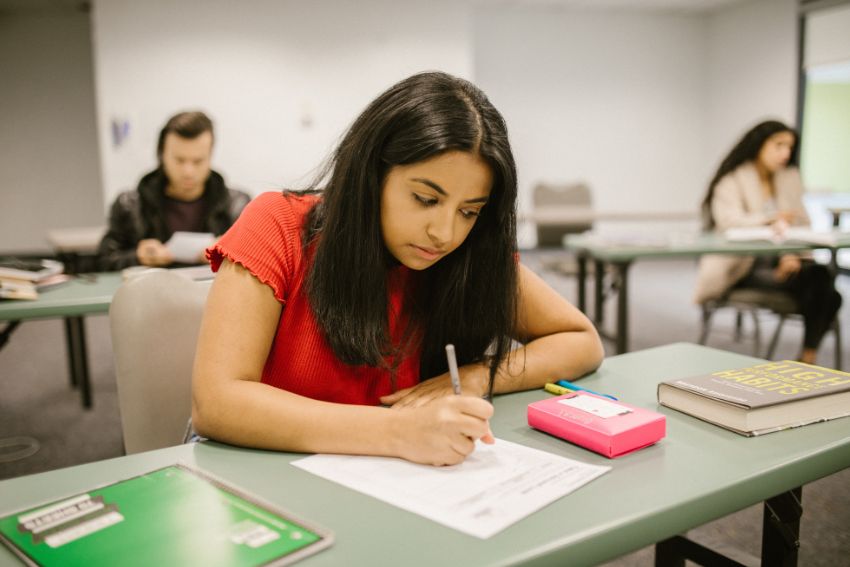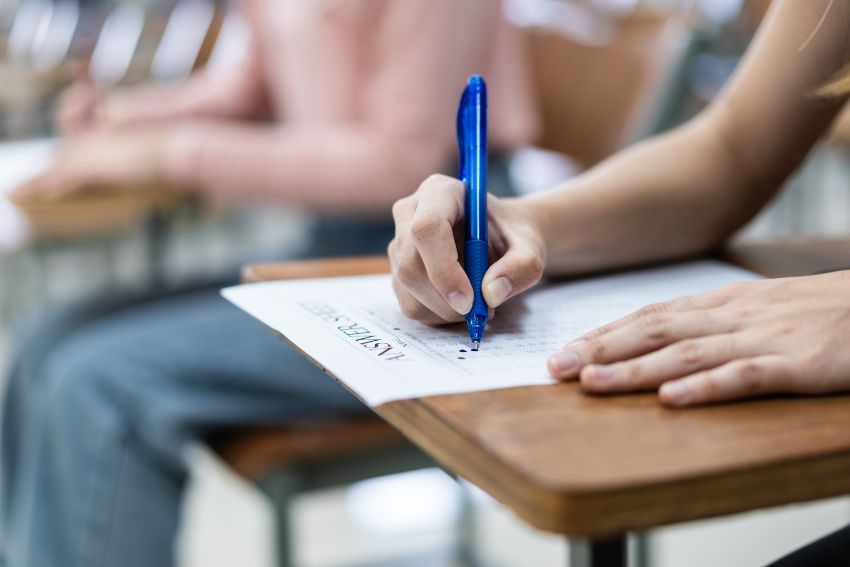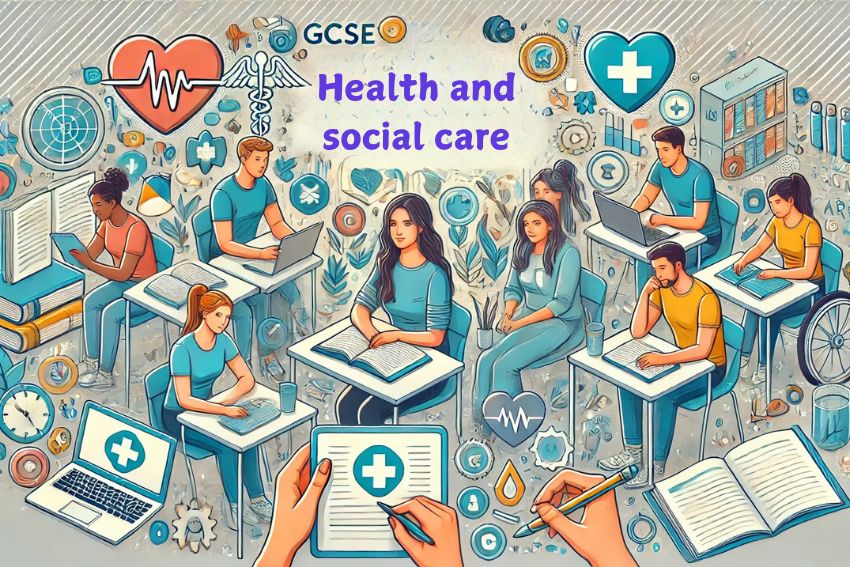How to Get Your GCSE Certificates and Results (Even from Years Ago)
Are you trying to find your GCSE results or wondering how to get your GCSE certificates? In this guide, we’ll walk you through everything you need to know in 2025 about how to find GCSE results and obtain your certificates. We’ll cover how to collect your original certificates, what to do if you’ve lost them, and how to find results from previous years. Plus, we’ll share some helpful tips for keeping these valuable documents safe for the future.
Getting your certificates doesn’t have to be complicated! With our step by step approach, you’ll have all the information you need. So let’s dive in and make this process as smooth as possible for you!
What Are GCSE Certificates and Why Do You Need Them?
If you’re asking, “Do I need my GCSE certificates?” the answer is yes. GCSE certificates are official documents proving you’ve completed your General Certificate of Secondary Education exams.
These important papers show the subjects you studied and the grades you achieved. Many students ask how to obtain GCSE certificates after completing their exams. It’s actually a standard process that happens after results day.
Each certificate includes your full name, the exam board, qualification title, and your final grade. The current grading system uses numbers 9 to 1 instead of the old A* to G system. A grade 9 is the highest achievement, while grade 4 is considered a “standard pass.”
So why are these certificates so valuable when learning how to get GCSE results? Many colleges and sixth forms request specific GCSE grades before accepting you onto their courses. Universities also look at your GCSE results, even when you apply with A Levels. For competitive ones like medicine or law, strong GCSE grades can make your application stand out.
If you decide to study abroad, these certificates can be useful for that. GCSEs are recognised internationally, which is why knowing how to get GCSE results from years ago can be useful throughout your career.

How to Get Your Original GCSE Certificates
After receiving your GCSE results, you’ll need to wait about three months for your certificates. Schools typically get these documents from exam boards around November if your results came in August 2025.
Your school will announce when certificates are ready for collection. They might host a special evening event or set specific collection days. Remember to bring photo ID when picking up your documents!
Can’t collect in person? You may nominate someone with your written permission, or some schools offer postal delivery options. Just make sure your contact details are up to date.
Don’t delay collecting your certificates! Schools only keep them for 12 months. After this, requesting GCSE certificates becomes more complicated. Mark your calendar and collect these important documents as soon as they’re available!
What If You Lost Your GCSE Certificates?
If you can’t find your GCSE certificates, don’t panic. Lost GCSE certificates are a common issue, and there’s a clear path to sorting this problem.
First, have a thorough search at home. Check folders, document boxes and family filing systems. Many people keep certificates with passports or birth certificates. Still no luck? Contact your former school straightaway. If you lost them recently, your school might still have records or copies on file. Some schools maintain digital records that can confirm your grades.
Bear in mind that schools aren’t required to keep certificate records indefinitely. Most only maintain them for a few years after you’ve left. If too much time has passed, you’ll need a different approach. Lost GCSE certificates from years ago? You’ll need to contact the exam boards directly. The next section explains exactly how to obtain replacement GCSE certificates without delay.
How to Obtain Replacement GCSE Certificates
Need to get replacement GCSE certificates? The process isn’t as daunting as it might seem. Let’s go through each step to make it as simple as possible for you.
Identifying Your Exam Board
The first thing you need to know is which exam board awarded your qualifications. If you can’t remember, there are several ways to find this information:
- Contact your old school or college – they’ll have records of which boards they used
- Check any old documents that mention your exams
- Ask former classmates who might remember which board was used for specific subjects
- Look for clues in old exercise books or revision guides you kept
The main exam boards are AQA, Pearson (Edexcel), OCR, and WJEC (for Wales). Each has its own process for replacing certificates.
Application Process for Major Exam Boards
- AQA: Visit their website and complete their online application form. You’ll need to provide personal details and information about when you took your exams.
- Pearson/Edexcel: They offer a dedicated certificate services section on their website. You can apply online for a ‘Certifying Statement of Results’ which serves as your official replacement.
- OCR: Access their replacement certificates service online. They’ll guide you through the steps needed to verify your identity and exams.
- WJEC: If you studied in Wales, you’ll need to download their application form and return it with required documentation.
Documentation and Identification Requirements
All exam boards will ask for proof of identity. This typically includes:
- Photo ID (passport or driving licence)
- Proof of name change if your name differs from when you took exams
- Signed application form
- Details of your school and the year you took exams
If someone else is applying on your behalf, they’ll need your written consent and their own identification.
Costs Involved
Replacing certificates isn’t free, unfortunately. Current costs range from £43 to £70 per certificate or application, depending on the exam board. Here’s a rough guide:
- AQA: Around £45 per application
- Edexcel: About £43 for standard service
- OCR: Approximately £48 per application
- WJEC: Around £50 per certificate
Some boards offer priority services at additional cost if you need your documents urgently.
Timeframes for Receiving Replacements
After submitting your application and payment, you’ll typically wait: standard service: 2-4 weeks and priority service: 5-7 working days.
Remember, what you receive isn’t actually a duplicate certificate. Exam boards provide a ‘Certified Statement of Results’ instead, which is officially recognised as equivalent to your original certificate.
The process of how to get replacement GCSE certificates might take a bit of time, but it’s straightforward once you know the steps. Start early if you need these documents for university applications or job opportunities!
How to Find GCSE Results from Previous Years
Wondering how to find GCSE results from years ago? Whether you’re applying for a job or further education, tracking down past results is entirely possible with these steps.
Contacting Your Former School or College
If you want to figure out how to get GCSE results, you should contact your school first. As we already mentioned, most institutions keep records of student results for several years. Simply get in touch with the school office and explain what you need. They might ask you to:
- Provide ID to verify your identity
- Submit a formal request in writing
- Specify exactly which years and subjects you need
- Pay a small admin fee in some cases

Directly Approaching Exam Boards
If your school can’t help with lost GCSE certificates or old results, contacting exam boards directly is your next step. You’ll need to:
- Identify which board administered your exams (AQA, Edexcel, OCR, or WJEC)
- Complete their specific application form for past results
- Provide proof of identity and any name changes
- Pay the required fee
The exam boards can provide a statement of results that shows how to get GCSE certificates 2025 or from previous years. This official document is widely accepted.
What If Your School Has Closed or Merged?
Don’t worry if your school no longer exists when you’re trying to get replacement GCSE certificates! Your records haven’t disappeared. In this situation:
- Contact your local education authority first
- They can tell you where school records were transferred
- For academies or free schools, contact the Department for Education
- They can direct you to the organisation now holding your records
Even if your school closed long ago, there’s still a way to find your results.
Online Options for Historical Results
While there’s no central database for all past GCSE results, some options might help:
- Some schools offer online portals for recent leavers
- Certain colleges maintain digital archives for those seeking how to get GCSE certificates
- Education management systems sometimes retain historical data
Unfortunately, these digital options usually only cover recent years. For older results, traditional methods remain most reliable. Finding old GCSE results takes persistence, but it’s certainly possible. Start early if you need these for upcoming applications, as obtaining GCSE certificates can take several weeks.
Steps to Request GCSE Certificates in 2025
How to get GCSE certificates in 2025? The process has become more streamlined with several digital options now available. Here’s what you need to know about obtaining GCSE certificates this year.
Current Application Processes
The application process for GCSE certificates 2025 involves several straightforward steps:
- Register online with your exam board’s certificate portal
- Create a secure account linked to your personal email
- Provide your Unique Candidate Identifier (UCI) from your results slip
- Verify your identity through a two-step authentication process
- Select which certificates you need if you took exams with multiple boards
Most exam boards now use similar digital systems, making it easier to request certificates even if you studied subjects across different boards.
Digital vs Paper Certificate Options
This year, you have more choices for how to get GCSE results and certificates:
- Digital certificates – delivered to your secure online account within 7-10 days
- Traditional paper certificates – posted to your registered address within 14-21 days
- Combined service – both digital and paper options for an additional fee
Digital certificates are gaining popularity as they’re quicker to obtain and harder to lose. However, some employers and institutions still prefer the traditional paper format, so consider getting both if you’re unsure.

New Procedures Being Implemented by Exam Boards
Exam boards have introduced several innovations for how to obtain GCSE certificates in 2025:
- Blockchain verification technology that confirms certificate authenticity
- QR codes on certificates that link to secure verification websites
- Mobile apps for managing and sharing your certification credentials
- Integrated systems that allow direct sharing with universities and employers
These changes make the process of getting replacement GCSE certificates more secure and reduce the risk of certificate fraud.
Timelines and Expected Waiting Periods
When planning how to get your GCSE certificates, timing is important. Here’s what to expect in 2025:
- Standard digital certificates: 7-10 working days
- Standard paper certificates: 14-21 working days
- Priority digital service: 3-5 working days (additional £15 fee)
- Priority paper service: 7-10 working days (additional £25 fee)
Request times may increase during peak periods (September-November), so plan accordingly if you need your certificates for university applications or job interviews.
Remember that lost GCSE certificates from 2025 exams are easier to replace within the first year after your exams. After this period, the process becomes more complex and potentially more expensive.
The good news is that GCSE certificates 2025 use improved tracking systems, making it easier to monitor your application status online. You’ll receive email updates at each stage of the process, from application receipt to dispatch of your documents. With these updated procedures, obtaining your GCSE certificates in 2025 should be simpler than ever before!
How to Get My Old GCSE Results
If you’re wondering how to get my old GCSE results, you can request proof directly from your exam board as a Certified Statement of Results.
For AQA, visit the AQA replacement certificate page and complete the Certified Statement of Results form, including proof of ID and payment.
For Edexcel (Pearson), use the Pearson Edexcel replacement certificate portal, submit the online form with identification, and pay the fee.
For OCR, go to the OCR lost certificates service, provide your exam details and ID, and pay the processing fee.
For WJEC, head to the WJEC replacement certificate page, fill in the application form, and attach valid identification.
Once processed, each board issues an official Certified Statement of Results confirming your GCSE grades, which serves as a valid replacement for your original certificate.
Conclusion
We hope this guide makes how to find GCSE results and how to get GCSE certificates much clearer. Whether you’re collecting your original certificates, replacing lost ones, or tracking down results from years ago, you now have all the steps you need.
If you’re currently studying for your GCSEs and feeling overwhelmed, online tutoring might be just what you need. Many students find that personalised GCSE online tutoring helps them achieve better grades. A good tutor can explain difficult concepts, provide past paper practice, and boost your confidence before exams.
Getting good GCSE results starts with proper preparation, and ends with safely storing your certificates for the future. Don’t hesitate to follow the steps we’ve outlined if you need to obtain GCSE certificates or find old results. The process might take some time, but having official proof of your qualifications is absolutely worth the effort!
FAQs:
Can you find your gcse results online?
You can’t directly find your GCSE results online through a public website, but you can access them in a few ways. Most students get their results through their school’s online portal or by collecting them in person. If you took your exams privately, the exam board (such as AQA, Edexcel, OCR, or WJEC) will send them to your registered email or post address.
What is the difference between a GCSE statement of results and the actual GCSE certificates?
A GCSE statement of results is a provisional document that provides your grades shortly after exams are graded. It’s generally available on GCSE results day and can be used temporarily for university applications or job interviews. However, it’s not a substitute for the actual GCSE certificates, which are official documents usually provided a few months later and required for formal verification of your qualifications.
How long are my GCSE certificates valid?
GCSE certificates do not have an expiration date and are valid indefinitely. However, some employers or educational institutions may have specific requirements for the age of the qualifications they will accept.
How can I obtain a copy of my GCSE results if I've lost my certificates?
You can request replacement certificates from the respective exam board that issued your original ones. There is usually a fee for this service, and you will need to provide identification. Alternatively, you can request a certified statement of results, which serves as an official document that can be used in place of the certificates.
How do I find out which exam board issued my GCSE certificates?
The best way to find out is to contact your school directly. Alternatively, classmates who sat the same exams or even teachers may remember. Some schools also list this information on their official website or portal.
What do GCSE certificates look like?
GCSE certificates are formal documents printed on high-quality paper, usually issued several months after results day. They display your full legal name, date of birth, and the awarding exam board’s name or logo, such as AQA, Edexcel, OCR, or WJEC.
Each subject you completed is listed with the grade you achieved beside it. The certificate often includes security features like watermarks, embossed seals, and unique reference numbers to prevent forgery.
Schools typically hand them out in person, but if you took exams privately, they’re sent to the address you registered with your exam centre. Keep your certificate safe, it’s the official proof of your GCSE achievements and may be required for university, college, or job applications later on.








